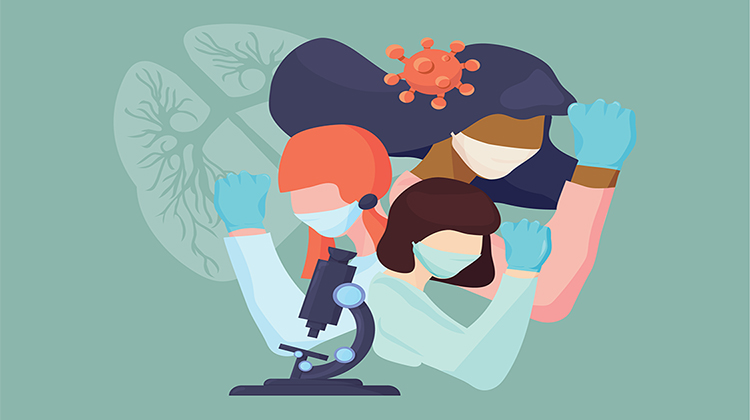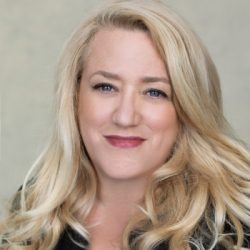Women in Stem with Ashley Hall
Posted: 31 October 2023 | Taylor Mixides (Drug Target Review) | No comments yet
“Throughout my education I was discouraged by many around me.” – This October edition of our Women in Stem series spotlights Ashley Hall, Chief Development Officer of Reneo Pharmaceuticals. Ashley shares her experiences, challenges, and insights. Her STEM journey began with a fascination for science, leading her to overcome initial obstacles in mathematics, and ultimately, merging her scientific and legal backgrounds in the pharmaceutical industry. Prior to joining Esperion, Ashley was the Global Regulatory Lead at Amgen, overseeing the regulatory strategy and global filings for the Repatha® programme, which led to the world’s first approval of a PCSK9 inhibitor for cholesterol lowering.


Can you tell us about your journey in the field of STEM and the challenges you encountered along the way? What inspired you to pursue a career in STEM, and how did you overcome any obstacles or biases you may have faced?
Someone with a fighter spirit and FDA regulatory experience had to fight for it and I decided to take on that role.
I always knew I wanted to study biology. My interest in science started in grade school, then continued through high school and finally into college. I was sure that Biology would be my major, but it required studying maths, and this was my first obstacle.


Ashley Hall, CDO of Reneo Pharmaceuticals
Throughout my education I was discouraged by many around me. I remember taking a trigonometry class that wasn’t going well and the professor advised me to give it up. He argued that the course was going to get harder and I didn’t have an aptitude for it. I refused to give up and realised that most of my class had this expensive calculator. After purchasing the same calculator things became a lot easier, although it was still a tough subject for me. But with all the incredibly complex functions that I was trying to accomplish mentally that were done by the calculator in seconds, I realised I had been disadvantaging myself. Since then, armed with the right tool, I could do the work and the harder it became, the more capable I was at doing it.
By the time I progressed to the more advanced classes, like advanced physics and calculus, I was the only woman in the class. With a lot of effort, I also could perform in the top percentile of the class
I’m a theory-based thinker. Once I understood the math that allowed rocket ships to go to space, or thermodynamics, and how the math was applied there, it all came full circle. Understanding the connection between STEM subjects is critical. When I was studying cell biology, looking at how cells divide, I couldn’t fathom how math could possibly fit into that. We didn’t talk about that until we got to the high-level classes, advanced physics and biochemistry, and I think some people get lost along the way because they are not taught the connection between these classes and their ultimate big picture importance. We are not taught the end game from the start. Many people might be more inspired in STEM subjects if they could see the result and work backwards. Wanting to understand the world, and the nuts and bolts of how things work, made math so much more interesting to me. And I’m sure I’m not the only one that thinks this way.
How did that transfer into the pharmaceutical industry?
My career path is somewhat non-traditional. My undergraduate studies focused on biochemistry and cell biology, so very much STEM-based, but my professors and mentors noticed my penchant for critical thinking which led me to consider law. I ended up getting my law degree and then spring-boarding from this, I combined it with my STEM background, and entered the pharmaceutical industry through the area of regulatory affairs. This sector of the pharmaceutical industry combined both my science and law background. Regulatory affairs workers get to tell a story about a drug to the regulators and – keeping the end in mind, which is the drug label or prescribing information – is a good way to communicate with regulators. Every drug has a story: an end game. If you keep it in sight from the beginning, you have a much better chance of success.
Could you share an example of a specific project or research that you have worked on and the impact it has had in your field?
I’ve been lucky to have seen several drugs make it all the way to market. And, I’ve seen how they can help people outside of the setting of clinical trials. A specific example that has had impact in my field was in paediatric oncology. My motivation for wanting this drug to succeed was it was being developed for children with cancer who had exhausted all options and had a very short survival expectation (three to four months). Every day matters in the lives of these children and their families. Given there were no other drugs available to them, I cannot even describe the urgency I felt when I entered the project on the drug development side. Someone with a fighter spirit and FDA regulatory experience had to fight for it and I decided to take on that role. The drug ended up getting approved, and it extended the lives of children many years where they previously would have had four months at best.
How has your research in STEM contributed to advancements or improvements in your field, and what potential future applications or implications do you foresee based on your work?
Everything we do is unique, and every project is something forged into the unknown. By definition, this is the cutting edge, and we are in it. We are constantly developing something that hasn’t been done before. It’s never the same thing twice; never the same drug twice. We are constantly figuring things out: new science and new arguments to support development. This is what makes the field so interesting. It’s like stepping onto the moon every day for work, sometimes you sink into a crater and have to find a way to get out and other times, you are taking giant new steps where no one has gone before. Every day is full of discovery.
As a woman in STEM, what unique perspectives or strengths do you believe you bring to your work?
As I have gone through my career, I can honestly say that doors haven’t exactly been flying open for me. I’m fifty-one years old, and as I was going through my educational training, most of the people in my classes were men and most people thought I wouldn’t make it. But I am a women working in an executive leadership position. My industry has done well but it is still overwhelmingly dominated by men in 2023 at the executive C-Suite levels. I am fortunate to have a lot of champions though for my career and I am a champion of all diversity. Overall, we may be doing better, but I still think we need more diversity overall on boards and in executive leadership positions.
My motivation for wanting this drug to succeed was it was being developed for children with cancer who had exhausted all options and had a very short survival expectation (three to four months).
Growing up, I heard time and again: “Girls are not good at math” so it took me a long time to reject that idea. I grew up with just my dad and two older brothers and my dad never doubted that I could do it; he had confidence in me. He told me that Einstein failed math, not to give up and that luck favours the prepared mind. Throughout my career, there have been people championing me, most of whom were men who mentored me and believed in me. My last boss and my current boss here at Reneo are incredibly supportive of diversity overall and of my career growth. This is absolutely critical for my success and confidence building.
What advice would you give to young women who are considering a career in STEM but may be hesitant due to societal stereotypes or perceived challenges?
If you have a passion to study something, and you think you can contribute through that in a meaningful way, you should follow that passion. Don’t listen to people who try to impose barriers on you. Instead look for people who will build you up, yourself being the most important one. It’s not always easy to change your circumstance, but you can. Question the environment you are in. Question the situation. Maybe you don’t’ have the right teacher, or the right tool. Maybe you’re just missing the right calculator, or a safe place to study, time away from your kids, your family, whatever your environment is. If you set the right intention and then drive to achieve it, you can accomplish anything you want.
What do you think organisations and institutions can do to create a more inclusive and supportive environment for women who want to pursue STEM careers?
They need to ensure that everyone has a seat at the table. You see a lot of companies really trying these days. When I hire someone, I make sure that they have all the tools they need to be successful. Internship programmes are great because those early connections, that networking, is what will help their careers. Even just the basics you learn during an internship, how to set up a meeting, how to send an email, how to talk to people in the field. Witnessing that growth, from intern to say, senior director level, is so rewarding.
Witnessing that growth, from intern to say, senior director level, is so rewarding.
Companies need to assess how they are organised and question if they are doing enough. This needs to happen at a team level, at a company level. We want to see people from diverse backgrounds, and we want to see them grow.
Looking ahead, what exciting developments or advancements do you foresee in your field of STEM, and how do you envision your own research contributing to those future innovations?
I work on a rare disease called primary mitochondrial myopathy, for which there is currently no approved treatment. Reneo has been working on this since before 2018. We will be wrapping up an ongoing study and are hopeful that we can bring a therapy to market for this disease. Right now, I am focused on making sure this potential therapy is positioned to get the appropriate labels for commercialisation. Otherwise, STEM is on fire right now with artificial intelligence and so many changes.
About the author


Chief Development Officer of Reneo Pharmaceuticals
Ashley is the Chief Development Officer of Reneo Pharmaceuticals. Ashley brings more than 22 years of biopharmaceutical industry experience in drug and biologics development across multiple therapeutic indications including in rare orphan diseases. Previously, Ashley was the Chief Development Officer and Head of Global Regulatory Affairs at Esperion Therapeutics, where she successfully led the regulatory approvals of the company’s two lead cholesterol lowering products, Nexletol® and Nexlizet®, in major markets around the world.
Prior to joining Esperion, Ashley was the Global Regulatory Lead at Amgen, overseeing the regulatory strategy and global filings for the Repatha® program, which led to the world’s first approval of a PCSK9 inhibitor for cholesterol lowering. Prior to Amgen, Ashley was the Vice President of Regulatory Affairs at Micromet (acquired by Amgen) where she led the Blincyto® rare disease oncology program. Ashley also held prior leadership roles at RevoGenex, MedImmune (acquired by AstraZeneca), and Abraxis BioScience.
Related organisations
Reneo Pharmaceuticals
Related people
Ashley Hall (Reneo Pharmaceuticals)



